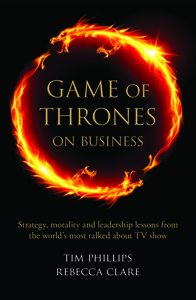Author Archives: Catherine Holdsworth
Is Nigel Farage an authentic leader?
1 May 2015 by Catherine Holdsworth in Authentic leadership, Current events
Barely a week has gone by this year without a UKIP scandal making the headlines, a member of the party has had to step down because they have made a racist/homophobic/sexist gaffe and have ’embarrassed the party’. Whether you can embarrass a party whose leader is the prime reason nobody can take it seriously is a matter for the voters to decide.
After the scandal over a member having gone to Wadham College in Oxford and then ‘changing her mind’ or Farage declaring that his party is not racist because they have one ‘half black’ and one ‘fully black’ member. You’d be forgiven for thinking that this is all some sort of bad-taste seventies comedy, but no, here is a man who believes he and his party have the best intentions for British citizens and are going to make Britain a better place come the election next week.
We only have six days left until the polls open and there’ll be more town hall debates, character assassinations and vacuous claims coming from all sides until the Public are left with the final word. However much we have laughed at Farage, found amusement in the ridiculous nature of his party and campaigning, there is a very real danger that this man will gain a seat in parliament next week.
Yes, he looks like he smells of fags, booze and misogyny, but Farage is a real danger to the psyche of British politics. His hypocritical policies are having a deep impact on potential voters. Now, we’re not comparing him to Hitler, but Farage, much like Hitler, is looking for a scapegoat for the British peoples’ problems. For Hitler, it was the Jews, for Farage, it is immigrants. Statistically, immigrants in Britain put more into the economy than they take out, and many come here, not to sponge off the system, but to make a better life for themselves and their families. Farage himself married a German woman and employs her as his secretary. It will be a difficult day at the airport for the Farage family if he is forced to deport his own wife. But then, we would not expect a hypocrite to do that, would we?
Then there are the claims that Farage has the best interests of the British people and has put them at the heart of his policies. A little-known fact about this man is that he used to be a banker in the very city that for too long has creamed off the profits and put the economy in a very compromised position. Do not be fooled by the beer-swilling, everyday man that Farage presents himself to be. He will certainly not be affected by the bedroom tax or the benefits cuts. He likely has little to no idea how the everyday person manages with VAT at 20% and the rising cost of living.
When it comes to polling day, consider yourselves and consider that this man his no idea what he is doing. Power can be very dangerous in the wrong hands, and one who is seeking it so desperately should have his motives called into question. Farage is anything but authentic.
Authentic leadership by Bas Blekkingh
20 April 2015 by Catherine Holdsworth in Authentic leadership, Business and finance
Could you be a great leader?
What if you could lead better simply by being yourself? No more management training courses or lengthy leadership seminars, just a chance to let the real you shine and achieve success at work and at home.
It sounds too good to be true but a new book called Authentic Leadership, by business consultant Bas Blekkingh, claims anybody can be a great leader just by being ‘real’. Many business books will tell you that in order to lead others you need to perfect certain management techniques or influencing skills. But Blekkingh says it’s far simpler than that – all we need to do is truly understand our own motivation and purpose and great leadership will naturally flow from that.
Bas Blekkingh has experienced many different styles of leadership throughout his career. As a junior world championship rower he was coached with the ‘no pain, no gain’ style of leadership; as an officer in the army he learned to think tactically and organise troops and as a leadership consultant he became familiar with the standard tips and tricks managers are taught to use. But he also discovered that all of these styles of management only took him so far, that something was holding him back and preventing him from feeling completely fulfilled in his work. Blekkingh says, ‘I came to the conclusion that true leadership is not about learning tricks. It’s about unleashing your authentic inner power and facing the fears that stop you giving yourself completely.’
 Blekkingh now runs a highly successful business teaching his insights and methods to other individuals and organisations. In Authentic Leadership he invites readers to learn these methods in order to create more, do more, inspire more and achieve more both at work and in their lives beyond their jobs. He encourages readers to journey through his field-tested seven-layered model in order to discover their mission in life and demonstrates that leading is about more than merely managing others.
Blekkingh now runs a highly successful business teaching his insights and methods to other individuals and organisations. In Authentic Leadership he invites readers to learn these methods in order to create more, do more, inspire more and achieve more both at work and in their lives beyond their jobs. He encourages readers to journey through his field-tested seven-layered model in order to discover their mission in life and demonstrates that leading is about more than merely managing others.
Authentic Leadership is an inspirational, sometimes challenging book that enables readers to create an environment where achievement and fulfilment positively reinforce each other, whether they are a manager, coach, consultant, professional or teacher. So what are you waiting for? Get your copy today!
“My little birds are everywhere” – Lord Varys
15 April 2015 by Catherine Holdsworth in Business and finance, Game of Thrones on Business
In our ever more connected world it can be hard to know what is private and what isn’t. Recently many people have discovered to their horror that what they thought were private messages or photographs have been hacked and shown to the whole world. Perhaps it’s time to take some lessons in circumspection from Game of Thrones.
 Sony Pictures learnt the lesson the hard way a few months ago when its IT system was hacked and private emails published online. Many stars that you thought were loved the world over were picked apart and scrutinised by Sony executive Amy Pascal and producer Scott Rudin. Never mind the trouble with the film The Interview, even Angelina Jolie, the highest-paid actress in Hollywood, was not immune from being a victim, having been the subject of a derisive email by Rudin. With all the bankable power that Jolie has, not to mention the influence (she is part of the ultimate power couple, has inspired many women to get their breasts checked and includes international politicians among her close friends) surely it is better to keep her on side? But clearly Pascal and Rudin, perhaps naively, assumed that their emails were private, otherwise there’s no way they’d have made low jibes about President Obama, joking about ‘black’ films he might enjoy. It has been revealed that Amy Pascal has quit her job after the fall out. Clearly her granny never told her that if she couldn’t say anything nice it was better not to say anything at all.
Sony Pictures learnt the lesson the hard way a few months ago when its IT system was hacked and private emails published online. Many stars that you thought were loved the world over were picked apart and scrutinised by Sony executive Amy Pascal and producer Scott Rudin. Never mind the trouble with the film The Interview, even Angelina Jolie, the highest-paid actress in Hollywood, was not immune from being a victim, having been the subject of a derisive email by Rudin. With all the bankable power that Jolie has, not to mention the influence (she is part of the ultimate power couple, has inspired many women to get their breasts checked and includes international politicians among her close friends) surely it is better to keep her on side? But clearly Pascal and Rudin, perhaps naively, assumed that their emails were private, otherwise there’s no way they’d have made low jibes about President Obama, joking about ‘black’ films he might enjoy. It has been revealed that Amy Pascal has quit her job after the fall out. Clearly her granny never told her that if she couldn’t say anything nice it was better not to say anything at all.
There are no emails in Game of Thrones, but that doesn’t mean there’s any such thing as a truly private conversation. As Petyr Baelish points out to Ned soon after his arrival in King’s Landing there are three major networks of spies operating (and who knows how many minor ones). Varys, Cersei and Baelish himself all run sophisticated spying operations and nobody, however innocent they may appear, is above suspicion – he points out that a small boy, a gardener and even a Septa (a holy women) are all listening on somebody’s behalf. But it’s hard to hatch plots if you can’t talk to anybody for fear of being overheard and just as Scott Rudin clearly had to get his frustrations with Jolie off his chest somehow, Ned has to share his qualms about the legitimacy of Joffrey’s inheritance of the throne with somebody. Unfortunately Ned did pick just about the worst co-conspirator he could. Naively believing that he can trust Baelish he shares his thoughts with him – this is despite initially thinking him untrustworthy and being told by Baelish himself not to trust him. Unless you’ve been asleep for the last four years you’ll know the truly devastating consequences of Ned’s unwisely shared secrets. While the Sony execs have kept their heads we’re guessing that Scott Rudin will be avoiding any parties attended by Ms Jolie for some time to come.
A final side note here is that if you know that you’re being spied upon you can control the game yourself by sending out a little misinformation. Tyrion demonstrates this by placing a different rumour with each of several people he suspects of working against him. By finding out if the rumours travel and where they end up he is able to work out who the spy is (it’s that snivelling old weasel Grand Maester Pycelle). So if Rudin wants to get back in Ms Jolie’s good books perhaps he could find some way to ‘accidentally’ let it be known how much he admires Angelina for her charity work – unguarded Tweet (oops did I really say that?) or careless conversation in Chateau Marmont perhaps …?
Game of Thrones on Business by Tim Phillips and Rebecca Clare
13 April 2015 by Catherine Holdsworth in Business and finance, Game of Thrones on Business
Yesterday the fifth season of the HBO series Game of Thrones was released to an adoring global audience. If you’re not a fan yet perhaps you should be if only for the sake of your business. While watching it is incredibly entertaining, it could also revolutionize your business and leadership skills, a new book shows.
 To coincide with the new season launch independent publisher Infinite Ideas releases Game of Thrones on Business today. Authors Tim Phillips and Rebecca Clare argue that the fantasy series can provide answers to real-world dilemmas, suggesting that as a leader you should encourage those water cooler conversations and office gossip if it’s about last night’s episode. Your team could be discussing
To coincide with the new season launch independent publisher Infinite Ideas releases Game of Thrones on Business today. Authors Tim Phillips and Rebecca Clare argue that the fantasy series can provide answers to real-world dilemmas, suggesting that as a leader you should encourage those water cooler conversations and office gossip if it’s about last night’s episode. Your team could be discussing
- What Tywin Lannister has in common with Steve Jobs (neither favours the mothering style of leadership);
- Why Ned Stark should have had a scenario-planning meeting (just saying that ‘Winter is coming’ without doing anything about it is career shortening);
- What Daenerys Targaryen can teach us about servant leadership (she frees her slave–employees, and they adore her);
- How to network like Littlefinger (or even BNI’s Ivan Misner);
- Why behaving like Jon Snow will just antagonise your boss (being a clever little twat isn’t always endearing).
From the intern’s desk to the boardroom, every organisation has its own challenges and battles. Game of Thrones on Business draws parallels between the successful TV show and today’s frenetic business world. Each chapter offers a great opportunity to improve leadership skills and business strategy without the need for swords or dragons. Taking examples straight from the TV show to breathe life into management theory, Game of Thrones on Business demonstrates that the best leadership lessons can be learnt even while relaxing at home.
Should BP have sent a raven?
10 April 2015 by Catherine Holdsworth in Business and finance, Game of Thrones on Business
It’s common knowledge now that the Deepwater Horizon oil spill in the Gulf of Mexico in 2010 was the biggest known oil disaster in the petroleum industry, the clean up of which was handled very badly by BP. Might the damage-control have gone better if CEO Tony Hayward had been able to swot up on Game of Thrones before entering the fray?
 Initially not comprehending the gravity of the disaster, Hayward was sent to deal with the press. Very quickly BP was branded an enemy of the environment and held up as a company built on greed and profits, out for its own gain with little respect for its customers, and entirely lacking any concern for the world around it. Hayward was sent to handle the growing threat to coastlines and wildlife, but his unsympathetic reaction and reluctance to admit that BP was at fault quickly put the company in danger of losing shareholders and, perhaps more importantly, credibility. Producing a product which has damaging effects on the environment is tough enough, with activists always on your case, but a fundamental lack of understanding of the effect that your company has on its surroundings can be devastating. We continue to need oil, which fuels our capitalist economies; BP supplies a product that all of us rely on, whether directly or indirectly so the company certainly could have come out of the situation a lot better than it did. So what went wrong? Perhaps a few lessons on delivering messages from the hit HBO series might have helped.
Initially not comprehending the gravity of the disaster, Hayward was sent to deal with the press. Very quickly BP was branded an enemy of the environment and held up as a company built on greed and profits, out for its own gain with little respect for its customers, and entirely lacking any concern for the world around it. Hayward was sent to handle the growing threat to coastlines and wildlife, but his unsympathetic reaction and reluctance to admit that BP was at fault quickly put the company in danger of losing shareholders and, perhaps more importantly, credibility. Producing a product which has damaging effects on the environment is tough enough, with activists always on your case, but a fundamental lack of understanding of the effect that your company has on its surroundings can be devastating. We continue to need oil, which fuels our capitalist economies; BP supplies a product that all of us rely on, whether directly or indirectly so the company certainly could have come out of the situation a lot better than it did. So what went wrong? Perhaps a few lessons on delivering messages from the hit HBO series might have helped.
Messages are frequently sent in Game of Thrones. We’re not talking about the sort sent by raven so much as the demonstrations of strength. So in this category would come pouring molten gold over the head of an entitled and ambitious irritant to demonstrate why you’re not to be messed with, crucifying slave masters to show what happens to the unjust when they cross you, or cutting off the hand of the best swordsman in the land to prove that the Lannisters aren’t all they’re cracked up to be. None of these is really good PR in the sense of making the message sender look like a good person, but they do all demonstrate the value of public relations, of controlling the message so that the recipient perceives you in the way you want to be perceived.
Although sending a message works well, sometimes nothing beats delivering the message yourself – provided you are sufficiently clued up to handle the situation. In the first series of Game of Thrones, Ned Stark goes down to King’s Landing to help the king, Robert Baratheon. Knowing how treacherous the Lannisters can be, his wife begs him to send a deputy, but for Stark it is imperative that he go himself, for only then can he truly represent the views of his kingdom. Perhaps this is what BP was hoping to achieve by sending its CEO to help smooth over relations, but like Ned, Hayward didn’t really understand the world he was entering. While Ned failed because his idealism clashed with the corruption at court, BP’s massive gaffe could perhaps have been avoided with a little media training.
Sending the CEO could have been great PR – if you send your top guy to a disaster rather than a representative it shows that you understand the situation is serious. It also demonstrates a will to be honest and avoid the accusations that could come from hiding behind a slick (no pun intended) PR operation. Unfortunately in a company this huge the CEO rarely knows as much as the folks on the ground and is not necessarily adept at handling the world outside his corporate ivory tower. It was abundantly clear that Hayward had not been properly prepared for dealing with the media. Perhaps sending a public relations advisor to brief him and field questions for him might have enabled the CEO to show he was actively concerned and doing his best to ensure that the issue was resolved as quickly and efficiently as possible instead – dare we say it – of putting in a performance that made the company look corrupt and shambolic.


 WARNING, SPOILERS
WARNING, SPOILERS